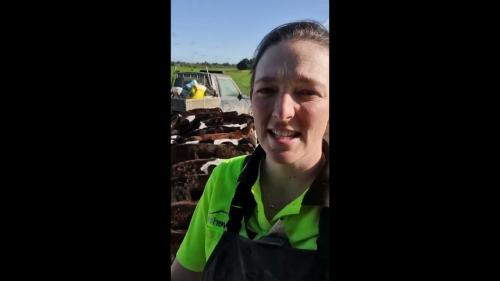Search results
Displaying 21 - 30 results of 120
- News… a dedicated vet and Beef + Lamb New Zealand Wormwise Facilitator is thinking outside the …

- Resource book… sick something else scan more information wormwise worm diagnostics sarah humphries … zcomprogrammespartnershipscurrentprogrammesblnzwormwiseprogrammewormdiagnostics january 2025 … may develop through scan more information wormwise worm life cycle …
- PageIf only we didn’t have to collect poo, but we do!!! Faecal egg counts can be done on individual samples or on a bulk sample (composite samples). Learn about when you might use one or the …
- Faecal egg counts, larval cultures and other diagnostic methods can be used to assess the level of worm infestation in stock, and whether drench treatments have been …
- PageIf you want the best information from your worm monitoring, make sure you collect fresh samples and store them correctly. Here’s a quick …
- Factsheet… review drenching procedure guidelines wormwise website you unsure wwwwormwiseconz drench wise careful accurate … treating more information useful resources wwwwormwiseconz once right httpwwwwormwiseconz …
- Factsheetpepa kōrero meka 1 ngā pānga ngā noke tīmata tonu pānga ngā noke whakaputanga kararehe ina tonu atu ngā kararehe ngā torongū noke kei ngā otaota taea tiro ēnei pānga hei tētahi rārangi motukore mai …
- The lifecycle of most gut worms is the same – understanding this helps with decision-making around grazing and drenching. Understanding the patterns of what worm species predominate where, when and …
- PageMeet the ‘other’ critters that might be freeloading in your stock! Tapeworm is a mostly harmless parasite of young lambs. Lungworm is most common in young calves and can cause serious disease if left …
